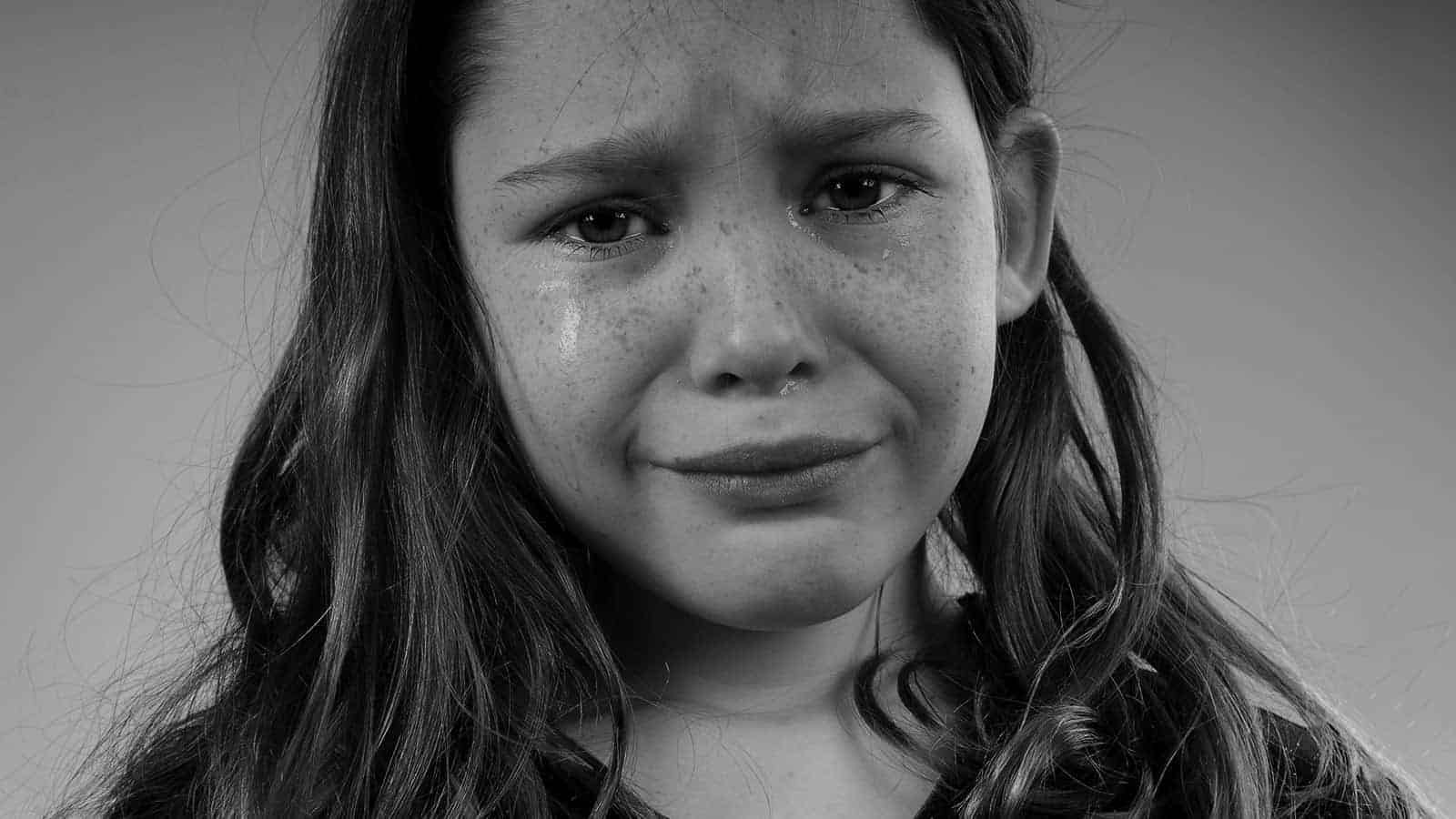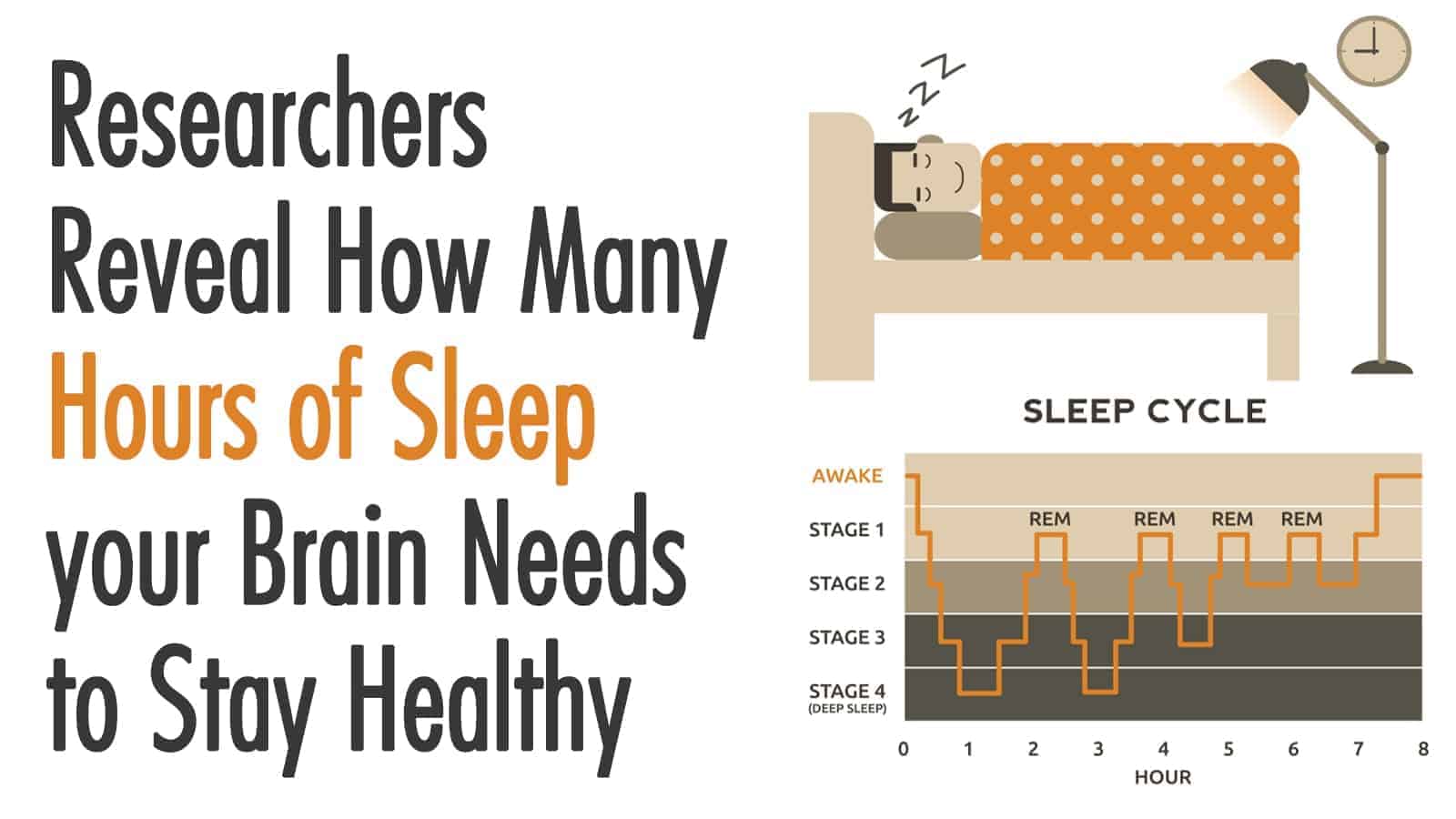Good sleep is absolutely vital for the health of the body. It’s so crucial that research has shown it may even be more crucial than food when it comes to keeping the body safe and well. Unfortunately, for some people, sleep is hard to come by.
There are many things that can cause insomnia – but did you know that one of them is childhood trauma? That’s right. Trauma and abuse at a young age could be linked to lifelong chronic insomnia, says new research. In this article, we look at the way psychology explains how a traumatic childhood can cause insomnia for life.
Psychology Explains How A Traumatic Childhood Can Cause Insomnia For Life
1. What Is Insomnia?
Insomnia is a disorder that results in an inability to fall or stay asleep. Up to 35% of all adults experience some brief form or symptom of insomnia. Meanwhile, up to 20% have insomnia for less than 3 months, while 10% have long-term insomnia multiple times a week.
Insomnia affects sleep quality, decreases positive thinking, and causes fatigue, alongside many physical and mental health issues. It disturbs work and school performance and can greatly increase the risk of accidents – so much so that driving drowsy is considered as bad as driving drunk.
Insomnia is typically measured using the Insomnia Severity Index, which is designed to, with some accuracy, measure the experience of insomnia. It calculates the severity and impact of the condition through the use of 7 items, rated by patients on a Likert scale of 5 points. It is often used to determine an initial diagnosis and monitor progress through treatment.
The Insomnia Severity Index looks at:
- Sleep onset
- Waking
- Sleep maintenance
- Interference with everyday life
- Dissatisfaction with sleep
- Distress caused by problems with sleep
- Obviousness of the issues to other people
2. The Research
In 2016, a study published in a journal called Sleep revealed that adults who struggle with insomnia are likely to have grown up in traumatic or abusive conditions. The study involved 1,007 volunteering participants living in Philadelphia, between 22 and 60 years of age.
These participants were asked about their sleep based on the Insomnia Severity Index and then split into three separate groups: those with healthy sleep, those with mild insomnia, and those with moderate to severe insomnia.
Participants were then asked to report on issues that could have led to psychosocial stress. This includes the death or divorce of parents, childhood abuse or trauma, or being raised by parents dealing with anxiety or depression themselves. Findings were then unveiled at a meeting for the Associated Professional Sleep Societies.
The results showed that those who had dealt with childhood stressors of some form – whether through parental loss, parental mental illness, parental divorce, or childhood abuse – had a higher chance of experiencing insomnia of some form. It’s interesting to note that parental death was the leading factor linked to highly severe symptoms of insomnia.
Researchers hope that their results will help in producing more positive and effective treatment for those dealing with chronic insomnia, no matter how severe. If childhood events can impact sleep decades into the future, experts may be able to use this information to better comprehend the way the body’s health is linked to sleep.
3. Other Causes of Insomnia
While a traumatic childhood can cause insomnia for life, as well as other sleep disorders, there are countless other causes behind these problems. Here is a comprehensive list of them.
a) Medical Causes
There countless different medical issues that may lead to insomnia. The reasons can range from sleep trouble being a symptom of an underlying medical condition, or symptoms of a medical condition making it difficult to fall and stay asleep. Here are some examples of insomnia-causing medical problems:
- Gastrointestinal issues
- Allergies
- Asthma
- Neurological disorders
- Sinus and nasal issues
- Chronic pain
- Endocrine issues
- Lower back pain
- Arthritis
If you find yourself dealing with insomnia, you may want to speak to your doctor about possible underlying causes for the problem. There could be some medical issues you are not aware of.
b) Sleep Disorders
Insomnia is part and parcel of numerous other sleep disorders that you may not realize you have. One extremely common disorder is restless leg syndrome (RLS). This neurological disorder causes discomfort and restlessness in the lower limbs when lying down or resting. It can cause your legs to move around a lot, and it affects 10% of the population.
Restless leg syndrome can disturb sleep or prevent it from occurring. It tends to occur when resting, late in the day, or when you’re transitioning to sleep from wakefulness. This can cause it to be difficult to doze off, to begin with and make it even harder to stay asleep.
Another common sleep disorder that causes insomnia is sleep apnea. This disorder involves the constriction or obstruction of airways during times of sleepiness. This causes breathing to stall sometimes, dropping the oxygen levels within the body.
As a result, the body wakes up again and again throughout the night. The waking times might be very brief, but the repeated disturbance that can occur multiple times – in some cases – causes sleep deprivation and insomnia symptoms.
c) Medication
There are some medications that can disturb sleep, especially ones for:
- High blood pressure
- Asthma
- Nasal allergies
- Thyroid disease
- Colds
- Depression
- Heart disease
- Birth control
If your medication may be the cause of severe or difficult-to-handle insomnia, talk to your doctor about an alternative medication or taking additional sleeping aids. However, you should never stop taking the prescribed medication without a doctor’s approval – even if the lack of sleep is really getting to you!
d) Depression
Depression and other psychological disorders may be medical conditions, but the relationship between them and insomnia is more complex; hence, we’re including it in its own category.
These disorders and struggles can cause difficulty sleeping because of the unbalanced hormone levels within the body. They don’t just cause mood drops and decreased positive thinking – they also cause all sorts of sleep trouble. This is why those who have major depressive disorder are at high risk of developing very bad insomnia.
The worst part is that this is a deadly cycle of sorts. Insomnia on its own can cause mood swings and exhaustion that lends itself to a higher risk of developing depression in the first place. In short, insomnia can cause depression, which can cause insomnia, which can worsen depression, which can worsen insomnia…
If you are experiencing symptoms of depression, speak to a doctor or mental health professional as soon as possible. Depression can be treated and managed, as can insomnia.
e) Anxiety
Just like with depression, anxiety has a unique link to insomnia. Many adults who have difficulty sleeping cannot shut their eyes due to anxiety or worry that keeps them on edge. Nervousness before big events is one thing, but regular anxiety can lend itself to an unhelpful sleeping pattern. Symptoms include:
- Thinking too much about events that have passed
- A sense of being overwhelmed by tasks and responsibilities
- Tension and stress
- Feelings of overstimulation
- Worrying constantly about the future
Anxiety can cause people to be unable to sleep, to begin with, or it may lead to an inability to fall back asleep after waking up in the middle of the night. Why does this happen? It’s likely that the resting period where there are no distracting activities causes these negative thoughts to form.
Worse still, a lack of sleep can cause a rise in tension or stress. For those with anxiety disorders, an inability to sleep may even become a trigger for worsened anxiety. As such, it’s a dangerous cycle to be caught in.
If you experience anxiety that leads to insomnia or vice versa, speak to a medical or mental health professional. Cognitive behavioral therapy, mind-body techniques, and other strategies will be able to help ease these issues.
f) Lifestyle Factors
A lot of unhealthy habits performed in everyday life can lend themselves to insomnia. They can lead to health issues that result in insomnia symptoms, or they themselves can make it difficult to achieve healthy and easy sleep. Here are some examples of lifestyle habits that can cause insomnia directly and indirectly.
i. Taking naps during the day
Short naps are helpful to some, but they can prevent easy sleep when night falls. Long naps, on the other hand, usually don’t do you any favors at all, so steer clear of them.
ii. Working non-regular hours
This can cause your bodily clock to alter, leading to confusion and unusual urges to sleep and wake up. If you shift between working days and nights, your internal clock is always going to be a little confused as it tries to adjust.
iii. Working nights at home
Your mind needs to unwind in order for your body to begin falling asleep. When you bring work home with you and spend the evening focusing on it, it can be hard for your brain to get ready for bed.
iv. Sleeping in
It’s tempting to sleep in on weekends, or when you have some extra time, especially if you’re trying to make up for sleep that you’ve missed. But this just causes more confusion for your body clock, so you may be unable to sleep properly that night.
g) Poor Management
For some people, insomnia is periodic, meaning it only happens due to certain rare triggers. In those cases, the problem can go away quickly once the triggers subside. But if you start adopting bad habits during those sleepless nights, they could turn temporary sleeping challenges into something chronic.
For example, you may start drinking alcohol, giving up on sleep altogether and staying up working or watching TV. Due to the difficulties some face sleeping, they can even become panicked at the lack of sleep. These issues are all poor ways of managing difficulty sleeping, and they might cause insomnia to grow into a more serious issue.
Final Thoughts On How A Traumatic Childhood Can Cause Insomnia For Life
Insomnia might seem like a condition easy to brush off, but it can have very heavy adverse effects on health. As such, it’s crucial for you to manage insomnia in a positive way from the moment it starts to show up. This will help you avoid a long-term sleep disorder or one that becomes so severe that it takes over your life.
If you are struggling with childhood trauma that leads to chronic insomnia, you should speak to a doctor or therapist about your treatment options. Childhood trauma can be very difficult to overcome, but with the right support and help, you can face those issues and learn to manage them, as well as their symptoms.














 Community
Community

